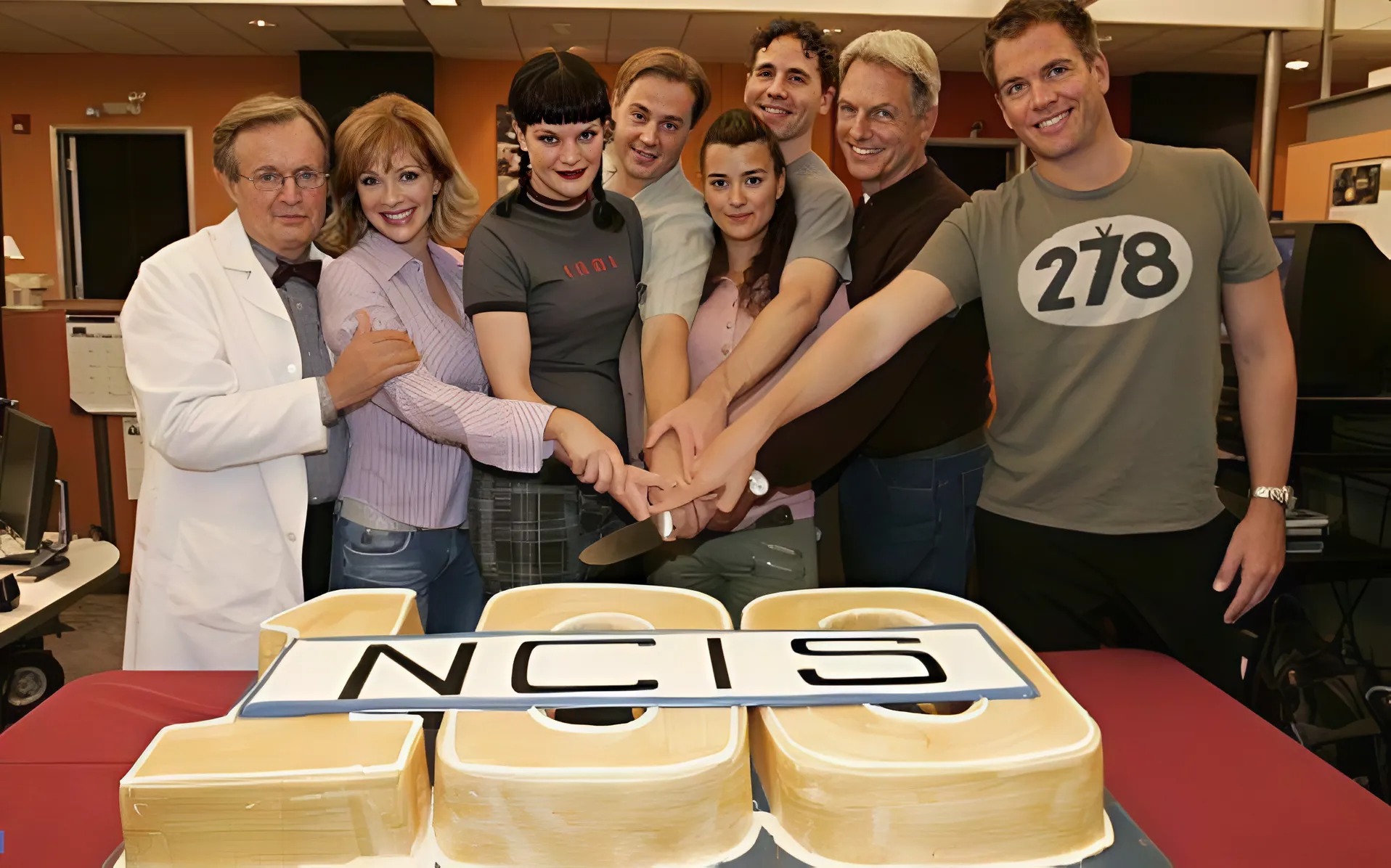
For over 20 years, NCIS has delivered thrilling cases, powerful performances, and unforgettable characters. But the real secret behind its longevity isn’t just about solving crimes—it’s about something far more personal: connection.
At its core, NCIS is a show about people who chose each other. About individuals from different walks of life, scarred by their pasts, brought together not just by duty—but by love, loyalty, and an unbreakable bond. They didn’t share blood, but they built a family.
In a world that often feels fragmented, NCIS gave viewers something rare: the comfort of watching a team who would walk through fire for each other—and often did.
The Anchor: Leroy Jethro Gibbs
If NCIS is a found family, then Gibbs was the head of the household. Played with stoic brilliance by Mark Harmon, Gibbs wasn’t just the team leader—he was the emotional glue.
Quiet but intense, Gibbs had his own personal code: 51 rules passed down like a compass to guide his team. Rule #1? Never let suspects stay together. Rule #6? Never apologize—it’s a sign of weakness. But when it came to his team, those rules were flexible. He didn’t raise his voice, but when he spoke, everyone listened. He didn’t show much affection, but he loved deeply.
Gibbs took in wounded people—those who had lost family, purpose, or themselves—and gave them a place to belong.
He mentored them, protected them, challenged them, and above all… he believed in them.
Loss, Loyalty, and Love
One of the reasons NCIS has resonated for so long is because it doesn’t shy away from loss. This isn’t a team where everything resets at the end of the episode. Every goodbye matters. Every death leaves a scar.
-
When Kate Todd was killed in Season 2, it shattered the team—and the audience.
-
When Ziva seemingly died, fans grieved. When she returned, they celebrated like family.
-
Abby’s emotional farewell after years of loyalty broke hearts worldwide.
-
And when Gibbs himself stepped away in Season 19, it felt like watching a father leave the family dinner table one last time.
But NCIS never stopped moving forward—because just like in real life, families evolve. They grieve, they heal, and they keep going.
The DNA of the Team Lives On
Today’s NCIS team looks different, but the spirit remains.
-
Nick Torres (Wilmer Valderrama) hides emotional wounds beneath bravado, much like a young DiNozzo once did. He’s fiercely loyal and often sacrifices his own well-being for the team.
-
Jessica Knight (Katrina Law) is sharp, brave, and learning how to let people in after loss.
-
Jimmy Palmer (Brian Dietzen) started as a quirky medical assistant and has become one of the emotional heartbeats of the show.
-
Alden Parker (Gary Cole) doesn’t try to be Gibbs. He brings a new kind of leadership—less gruff, but no less committed.
And the old family still checks in. McGee remains the bridge between generations. Ziva and Tony may be off-screen, but their presence is never forgotten. Abby’s spirit lingers in every quirky moment. Even Ducky, though gone, is part of the show’s DNA.
The family’s grown. It’s changed. But it’s still there.
A Global Phenomenon Built on Emotion
NCIS has aired in over 200 territories. It has inspired spinoffs, a prequel series (NCIS: Origins), and even international versions. But no matter how big it gets, the emotional core remains the same.
People return to NCIS not just for the mysteries, but for the moments between them:
-
The late-night conversations.
-
The shared grief over lost colleagues.
-
The inside jokes that only a real team could understand.
-
The sense that no matter what happens, someone always has your six.
In an age of binge-watching, constant reboots, and short attention spans, NCIS still draws millions of loyal viewers every week. Why? Because it reminds us that family can be chosen. That connection matters. And that even in the darkest times, you don’t have to go it alone.
The Legacy of a Chosen Family
In the end, NCIS is about more than crime scenes and rulebooks. It’s about building something out of brokenness. About creating trust where there was once suspicion. About choosing love over isolation.
For two decades, it’s been the warm hug at the end of a long day. The familiar voices in the background. The reminder that even the toughest people need someone to lean on.
It’s not just a show.
It’s not just a team.
It’s a family.
